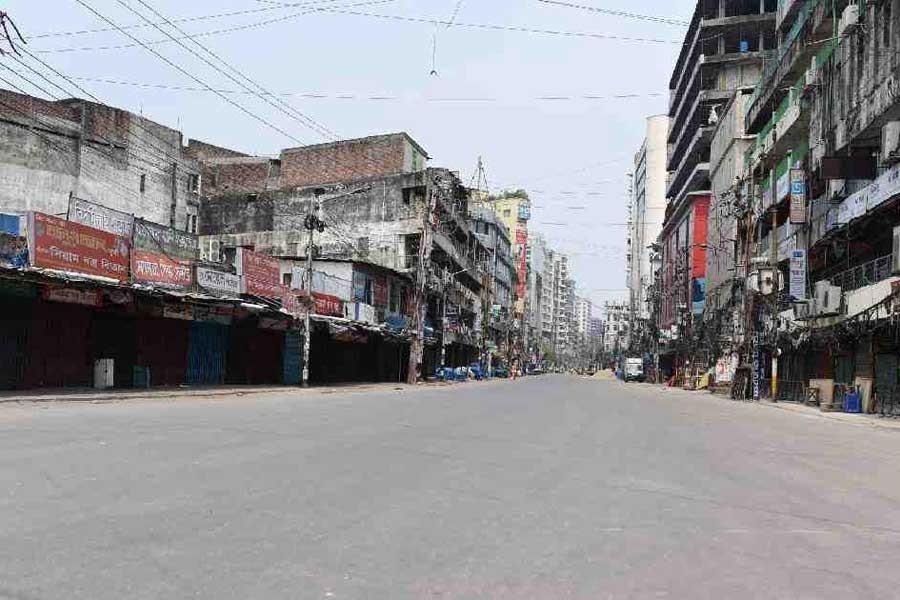
Published :
Updated :

Any lengthy suspension of normal economic activities first hits the petty businesses. It has been seen in this country during non-stop hartals and other similar political programmes. Few seem to have bothered to give serious thoughts to their plight. The nondescript traders suffer in silence. These days the state-recognised small businesses and cottage industries receive financial stimulus to keep them afloat. During emergencies, like the present pandemic-induced lockdowns, they rightfully deserve financial bailout measures of the government. Due to their institutional set-up, they have emerged as a catalyst for national economic recoveries. The business activities on the margins of the national economy stand nowhere near the small and medium enterprises (SMEs). The former could be better defined as the segment of a ragtag economy.
Hundreds of these tiny-capital business ventures dot the country --- especially the urban areas. Their clientele comprises people from lower-middle class, and the poorer segments of society. Owing to their inability to rent even improvised shops, they often do businesses under makeshift footpath sheds and even in the open. Being unapproved by the city corporations, they are viewed by the authorities as 'illegal'. This vulnerable status makes them entangled in the inescapable web of extortionists and different syndicates. With no options, these footpath and public place-occupying businesses have, thus, to learn how to run their commercial ventures by adopting a peaceful co-existence with the extortionists. This practice has been going on for decades. With the unabated increase in small-income people and the city witnessing an unwieldy growth, the improvised business sector in the capital and other cities has long become a 'necessary evil'. It's because eviction drives mostly result in violent mayhem, jeopardising peace in the adjacent areas.
Irrespective of sizes, all business activities come under the ambit of government-enforced Covid-19 lockdowns. Identifying ineffective outcome of the first lockdown in March, with little impact on the pandemic situation, the government has gone for the second 'hard lockdown'. It started on April 14. The second lockdown couldn't have come at a more volatile time for the marginal businesses. Even after the first moderate lockdown fizzled out, the petty traders, nonetheless, found themselves quite affected. When they had just started mulling new strategies to recoup the losses incurred during that lockdown, the second one took effect. To speak plainly, this lockdown is set to hit the marginal businesses the hardest among the commercial entities.
A stringent ban on the movement of pedestrians and vehicles, unless they have cogent reasons to come out, is now in force. With no pedestrians and rickshaw-pullers, small traders, including roadside open-air snacks joints, had few options except closing their business. After the unofficial end of the first lockdown, some of these traders had been eagerly awaiting the brief spell of Eid items sales meant for underprivileged clients. Eying the frenzy to be created over Eid shopping in the few days before another lockdown, small traders had hoped big, as they traditionally have a big chunk of Eid shoppers. The fresh imposition of the lockdown saw their big plans go awry. It was non-compliance by the city residents with health guidelines, which compelled the authorities to enforce the 2nd lockdown. In parallel, there should have been provisions for financial stimulus for informal businesses. These traders deserve a place at the top of the list of pandemic-affected groups earmarked for receiving emergency funds in the coming 2021-22 budget.


 For all latest news, follow The Financial Express Google News channel.
For all latest news, follow The Financial Express Google News channel.